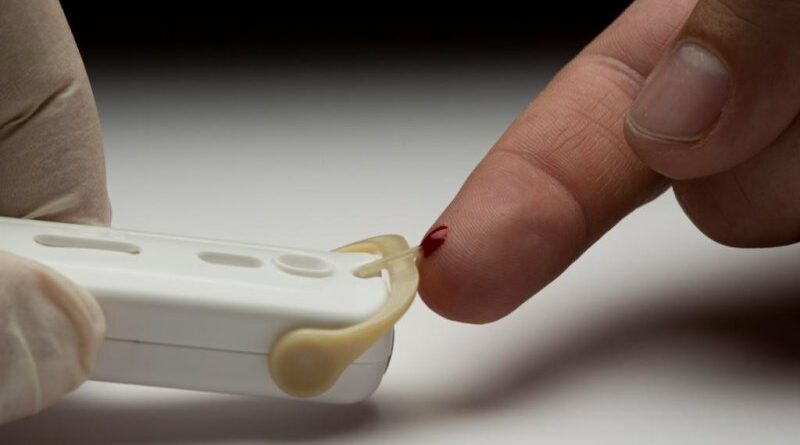Grindr ready to promote HIV self tests in grand plan to eradicate the virus
Save articles for later
Add articles to your saved list and come back to them any time.
Dating app Grindr is on board to promote the widespread use of HIV self tests – similar to COVID rapid tests – which are now as cheap as $20 and could help eradicate the disease in Australia by 2030.
Australia’s HIV Taskforce’s latest report has recommended the Commonwealth work with states and territories to expand the use of self tests, including improved initiatives to encourage testing through local initiatives.
Atomo HIV test lets Australians test themselves at home with a finger prick.
Advances in testing technology mean rapid tests, similar to those used for COVID, can be purchased at chemists and convenience stores for as little as $20.
“Australia is seeking to virtually eliminate HIV transmission by 2030. This goal is ambitious, but within our reach,” the report said.
“Following the lifting of COVID-19 era restrictions on social behaviour and movement there has been an increase in HIV transmission and diagnoses. Eliminating HIV transmission will require renewed efforts to increase prevention, testing, diagnosis, care and treatment.”
Atomo Diagnostics, the manufacturer behind Australia’s first approved-version of this product, are now pushing for them to be distributed more widely to offset a decline in testing during the pandemic.
Atomo Diagnostics founder John Kelly with the company’s testing kit. Credit: Kate Geraghty
Founder John Kelly said the Commonwealth taskforce’s decision to recommend self tests was a significant change, with Australia lagging behind other countries.
“The United Kingdom, the United States and Canada, those governments are all proactively procuring and supplying free HIV self tests to high-risk cohorts,” he said.
“It is a public health response and HIV self testing needs to be part of that response.
“COVID showed that rapid testing does have a part to play and the government has acknowledged that.”
Kelly said the foundations existed in Australia for a massive expansion of testing through government programs, vending machines and through promotion on dating app Grindr.
He said these programs, combined with the benefits of rapid tests, meant public health services could reach people they had never had access to before.
“There are pockets of populations that aren’t testing and are having higher than average rates of infection. That’s a lot of urban regional ethnic communities, rural areas and among indigenous communities where accessing clinics is really difficult,” Kelly said.
“Grindr has proven in the US that they can deliver significant scale and significant awareness. They’re also able to target messages by demographic, and they’re able to target messages by language preference.
“Having them on board, and being willing to do this in Australia is a massive opportunity and I think one the government really needs to grab with both hands while it’s available.”
Jack Harrison-Quintana, director of Grindr for Equality, said the company had a blanket offer to help authorities in Australia to promote the use of self tests through their app.
“We are really invested in this strategy … It is a really important way to fight this epidemic,” he said.
A partnership with health services in the US helped distribute 230,000 kits in six months, a quarter of which went to Grindr users.
Harrison-Quintana said this included people who had never tested before and the “staggering” number of people taking up tests had demonstrated how successful campaigns could be when partnered with other agencies.
“Australia is definitely moving in the right direction. We want to help where we can.”
Responding to the release of the HIV Taskforce report, federal Health Minister Mark Butler said the country had a bipartisan history of leading the response to the HIV pandemic.
“However, there are still significant challenges that need to be addressed to end HIV transmission in Australia.
“The HIV Taskforce report will help ensure Australia remains on track to eliminate HIV transmission by 2030.
“I was proud to chair the taskforce and work alongside so many deeply committed people whose tireless work over many years is making a real difference to the lives of so many.”
Other key recommendations of the report were to find ways to subsidise the use of Pre-Exposure Prophylaxis (PrEP), a medication used for HIV prevention, for people without Medicare access and to allow prescriptions through pharmacists and nurses.
Get the day’s breaking news, entertainment ideas and a long read to enjoy. Sign up to receive our Evening Edition newsletter here.
Most Viewed in National
From our partners
Source: Read Full Article


